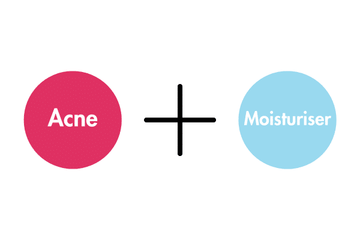Vitamin C is a powerhouse ingredient in skincare, known for its brightening, anti-aging, and antioxidant properties. It helps combat hyperpigmentation, evens out skin tone, and protects against environmental stressors.
However, like any skincare ingredient, too much of it can cause issues. Overuse of Vitamin C can lead to skin irritation, sensitivity, and other unwanted side effects. Let’s explore the potential problems associated with excessive use of Vitamin C and how to strike the right balance.
Effects of Overusing Vitamin C
1. Increased Skin Sensitivity
Using Vitamin C too frequently or in high concentrations can weaken the skin’s barrier, making it more sensitive to external irritants like pollution and UV rays. This may result in redness, itching, and discomfort.
2. Skin Irritation and Redness
Overuse of Vitamin C, especially in potent forms like L-ascorbic acid, can lead to irritation. This is particularly common in people with sensitive or dry skin. Symptoms may include stinging, burning, and visible redness.
3. Disruption of Skin’s pH Balance
Vitamin C is an acidic ingredient. Applying it too often can disrupt the skin’s natural pH balance, leading to increased oil production, dryness, or breakouts.
4. Increased Risk of Breakouts
Some formulations of Vitamin C, particularly those mixed with oils or in thick serums, can clog pores if over-applied. Additionally, if the skin barrier is compromised due to excessive use, it may react with increased acne or inflammation.
5. Oxidation Leading to Ineffectiveness
Vitamin C is highly unstable and prone to oxidation. If overused or stored improperly, it can degrade quickly, losing its effectiveness. In some cases, oxidized Vitamin C can turn yellow or brown, and applying it in this state may contribute to skin irritation instead of benefits.
How to Use Vitamin C Correctly
– Choose the Right Concentration: Start with lower concentrations (10-15%) if you’re new to Vitamin C and gradually increase based on your skin’s tolerance.
– Apply Once a Day: Vitamin C is most effective when applied once a day, typically in the morning, followed by sunscreen.
– Pair with Hydrating Ingredients: To prevent irritation, combine Vitamin C with hydrating ingredients like hyaluronic acid and niacinamide.
– Store Properly: Keep Vitamin C serums in a cool, dark place and tightly sealed to prevent oxidation.
– Avoid Mixing with Harsh Actives: Don’t combine Vitamin C with strong exfoliants like AHAs, BHAs, or retinoids in the same routine, as this can increase irritation.
Conclusion
Vitamin C is an excellent ingredient for brightening and protecting the skin, but overuse can lead to irritation, sensitivity, and breakouts. To reap the benefits without side effects, use it in moderation, choose the right formulation, and pair it with soothing ingredients. Skincare is all about balance—using Vitamin C wisely will help maintain healthy, radiant skin.




